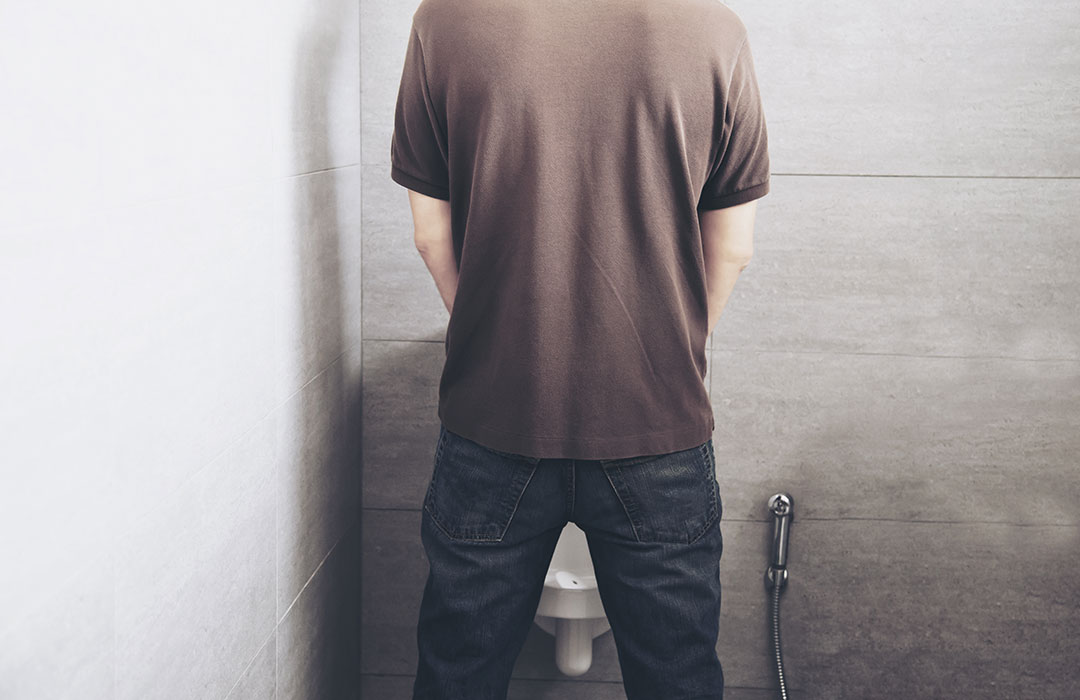Are you tired of feeling like you’re constantly running to the bathroom after taking creatine? Wondering if it’s just a myth or if there’s some truth to the claim? Look no further! This informative article dives deep into creatine and its alleged diuretic effects. We’ll separate fact from fiction and debunk the common misconceptions surrounding this widely used supplement. So, whether you’re an athlete looking to enhance performance or simply curious about the science behind creatine, join us as we unravel the truth behind the question: Does creatine make you pee? Prepare to be enlightened as we explore the research, consult experts, and provide you with the answers you’ve been seeking. Get ready to leave the confusion behind and better understand this popular supplement’s impact on your urinary habits. Let’s dive in and put this myth to rest once and for all!
What is Creatine and How Does It Work?
Creatine is a naturally occurring compound found in foods like meat and fish, as well as synthesized by the body in the liver, kidneys, and pancreas. It serves a crucial role in providing rapid energy during short bursts of intense physical activities, such as weightlifting or sprinting. When you take a creatine supplement, it increases the creatine phosphate stores in your muscles. These creatine phosphate stores act as a quick source of high-energy phosphates, allowing for the swift regeneration of adenosine triphosphate (ATP) – the primary energy currency of cells. This process enhances energy production and improves athletic performance during explosive activities. As a popular supplement among athletes and fitness enthusiasts, creatine’s ability to boost workout performance and aid muscle growth makes it a valuable tool for achieving fitness goals.
Understanding Creatine and Its Benefits
Before delving into the pee myth, let’s first establish a solid foundation regarding creatine. Creatine is a natural compound found in our bodies, mainly in the muscles. It plays a crucial role in energy production during high-intensity activities. Creatine supplementation is known to offer several benefits, including:
- It increased muscle strength and power.
- It improved exercise performance.
- It enhanced muscle recovery.
- It increased muscle mass and size.
How Creatine Works in the Body
Creatine is a naturally occurring compound found in small amounts in some foods and produced by the body. It plays a crucial role in energy production, particularly during high-intensity exercise. When you consume creatine, it is converted to phosphocreatine, which helps replenish adenosine triphosphate (ATP), the primary energy source for muscle contractions. By increasing the availability of ATP, creatine allows your muscles to perform better and recover faster.
Various studies have shown Creatine supplementation enhances strength, power, and muscle mass. Athletes, bodybuilders, and fitness enthusiasts often use it to improve their performance and achieve their goals more efficiently. However, one common concern with creatine is its supposed diuretic effect, leading to increased urination. Let’s explore whether this claim holds.
Creatine Is A Performance Enhancer
Numerous studies have demonstrated the performance-enhancing effects of creatine. It can increase muscle strength, power, and exercise performance, making it a valuable aid for athletes and fitness enthusiasts looking to maximize their potential during high-intensity activities.
Potential Side Effects of Creatine
While creatine is generally considered safe for most people when taken within recommended doses, some individuals may experience minor side effects. One commonly reported side effect is increased thirst, which could lead to more frequent urination.
Creatine Makes You Thirsty
As creatine supplementation increases the water content in your muscles, it can cause an increase in overall water retention in the body. Consequently, this may trigger the sensation of thirst, prompting individuals to drink more water. Staying hydrated is crucial for optimal performance and overall health.
Sudden Rush In Hydration
Due to the osmotic effect of creatine, water is drawn into the muscles, resulting in a sudden rush of hydration. This water influx can temporarily increase body weight in some individuals, but it is not a cause for concern. It will normalize once the supplementation is discontinued.
Creatine and Urination: The Truth Unveiled
Let’s address the burning question: Does Creatine Make You Pee? The short answer is yes, but there’s more to it. Creatine supplementation can increase water content within the muscles, which may cause some individuals to experience slightly more frequent urination. However, this is not a direct result of creatine itself but rather the increased water retention within the muscles.
It’s important to note that the increase in water content is localized to the muscles and does not significantly impact overall body hydration. The body’s water balance remains unaffected mainly, as the excess water is retained within the muscle cells rather than excreted through urine. Therefore, the claim that creatine makes you pee excessively is a myth.
Creatine Can Cause An Urination Frequency
The increased water intake caused by creatine supplementation can lead to more frequent urination. As your body tries to maintain a balance and excrete excess fluids, you may visit the restroom more often than usual.
Creatine Can Cause An Increase In Nighttime Urination
Some individuals have reported experiencing nighttime urination more frequently when taking creatine. This is primarily due to increased water consumption and the body’s response to maintaining fluid balance.
Common Myths About Creatine and Urination
One of the most prevalent myths surrounding creatine is that it causes excessive urination. Many believe that creatine makes you pee more frequently, leading to dehydration and electrolyte imbalances. However, the truth is a bit more complex.
While it is true that some individuals may experience an increase in urination when they start taking creatine, this effect is generally temporary and not a cause for concern. The initial increase in urination is due to creatine’s ability to draw water into the muscles, resulting in improved hydration levels within the muscle cells. This initial water retention can temporarily increase urination as the body adjusts. However, once the body adapts, the frequency of urination typically returns to normal.
It’s important to note that not everyone experiences increased urination while taking creatine. Some individuals may not notice any change in their urinary habits at all. Factors such as individual physiology, hydration status, and dosage can influence the extent to which creatine affects urination. Let’s delve deeper into the science behind creatine and urination to gain a better understanding.
The Science Behind Creatine and Urination
To understand the relationship between creatine and urination, we need to examine how creatine affects water balance in the body. As mentioned, creatine can draw water into muscle cells, increasing intracellular fluid volume. This increased water content within the muscles is believed to contribute to the improved performance and muscle gains associated with creatine supplementation.
However, this intracellular water retention does not necessarily lead to dehydration or excessive urination. Research suggests that creatine supplementation may have a hydrating effect on the body. A study published in the Journal of the International Society of Sports Nutrition found that creatine supplementation did not cause dehydration or impair thermoregulation in athletes. The study concluded that when consumed with adequate fluids, creatine does not have a diuretic effect that would result in fluid imbalances.
While creatine may cause initial water retention and a temporary increase in urination, it does not lead to chronic dehydration or electrolyte imbalances. The body’s natural regulatory mechanisms maintain water balance, even with increased creatine stores. Therefore, concerns about excessive urination or dehydration due to creatine supplementation may be unfounded.
Factors That May Affect Urination While Taking Creatine
Although creatine is unlikely to cause chronic dehydration or excessive urination, certain factors can influence an individual’s urinary habits while taking creatine. Hydration status, dosage, and individual response are key factors that may affect urination in creatine users.
Firstly, it’s essential to maintain adequate hydration while taking creatine. Drinking enough water throughout the day can help prevent any potential issues associated with water retention and ensure optimal performance. Hydrating properly will also help support overall health and well-being.
Secondly, the dosage of creatine can influence its effects on urination. Higher doses of creatine may lead to more noticeable water retention and potentially increased urination. It’s recommended to follow the dosage instructions provided by reputable sources or consult with a healthcare professional to determine the appropriate dosage for your specific needs.
Lastly, individual responses to creatine can vary. Some individuals may be more sensitive to its effects on water balance and may experience more noticeable changes in urination patterns. Others may have a higher tolerance and not notice any significant changes. Monitoring your body’s response and adjusting accordingly can help ensure a positive experience with creatine supplementation.
Potential Side Effects of Creatine
While creatine is generally considered safe for most individuals when used as directed, it’s essential to be aware of potential side effects. Common side effects of creatine supplementation may include gastrointestinal discomfort, muscle cramps, weight gain, and, in rare cases, kidney issues. It’s crucial to consult with a healthcare professional before starting any new supplement regimen, especially if you have pre-existing medical conditions or are taking medications.
To minimize the risk of side effects, following dosage guidelines, staying adequately hydrated, and choosing high-quality creatine products from reputable brands is important. Additionally, cycling off creatine periodically and giving your body breaks from supplementation can be beneficial.
Benefits of Creatine Supplementation
Despite the myths and concerns surrounding creatine, it remains one of the most extensively studied and effective supplements. The benefits of creatine supplementation extend beyond its potential impact on urination. Here are some of the key benefits associated with creatine use:
1. Increased strength and power: Creatine has been shown to enhance strength and power output, making it a popular supplement among athletes and strength training enthusiasts.
2. Improved exercise performance: By replenishing ATP stores, creatine helps delay fatigue and improve performance during high-intensity exercise.
3. Increased muscle mass: Creatine supplementation has been found to promote muscle protein synthesis, leading to increased muscle mass and size.
4. Enhanced recovery: Creatine may help reduce muscle damage and inflammation, leading to faster recovery and reduced muscle soreness.
5. Neuroprotective properties: Studies suggest that creatine may have neuroprotective effects, potentially benefiting brain health and cognitive function.
It’s important to note that individual responses to creatine supplementation may vary. Some individuals may experience more significant benefits, while others may see minimal or no noticeable effects. Genetics, training status, and diet can influence the response to creatine supplementation.
How to Take Creatine for Optimal Results
Following proper dosing and usage guidelines is essential to maximize the benefits of creatine supplementation and minimize potential side effects. Here are some tips for taking creatine for optimal results:
1. Start with a loading phase: To quickly saturate your muscles with creatine, consider a loading phase of 20 grams per day for 5-7 days. This can help expedite the process of increasing intramuscular creatine stores.
2. Maintenance phase: After loading, switch to a maintenance dose of 3-5 grams daily to maintain elevated muscle creatine levels.
3. Timing: Creatine can be taken anytime, but many individuals prefer to take it pre- or post-workout for convenience.
4. Mix with water: Creatine can be mixed with water or other non-acidic beverages for easy consumption. Avoid mixing it with acidic drinks, as they may degrade the creatine.
5. Cycle off periodically: Consider taking breaks from creatine supplementation to allow your body to reset and maintain its natural creatine production. A common cycling pattern is 8-12 weeks on, followed by 4 weeks off.
Remember, it’s crucial to consult with a healthcare professional or sports nutritionist before starting any new supplement regimen. They can provide personalized recommendations based on your specific needs and goals.
Debunking Other Common Myths About Creatine
Creatine has faced numerous myths and misconceptions over the years. Let’s address a few more common myths and debunk them based on current research and expert opinions:
1. Creatine causes kidney damage: Studies have consistently shown that creatine supplementation does not cause kidney damage in healthy individuals. However, individuals with pre-existing kidney conditions should exercise caution and consult their healthcare professional before using creatine.
2. Creatine is only for bodybuilders: While creatine is popular among bodybuilders, it can benefit individuals involved in various sports and activities. From sprinters to cyclists, creatine’s performance-enhancing effects can benefit athletes across different disciplines.
3. Creatine leads to bloating: While initial water retention may cause a temporary increase in weight, creatine does not cause long-term bloating. Drinking enough water and following proper dosage guidelines can help minimize any perceived bloating.
4. Creatine is only for men: Creatine supplementation can benefit both men and women. The physiological responses to creatine are similar in both genders, with studies showing positive effects on women’s strength, power, and muscle mass.
5. Creatine is a steroid: Creatine and steroids are entirely different substances. Creatine is a naturally occurring compound found in foods and produced by the body, while steroids are synthetic substances that mimic the effects of testosterone.
Does Creatine Make You Pee More? Why?
The increased urination associated with creatine supplementation primarily results from the body’s need to maintain water balance. Consuming creatine supplements, especially in higher doses, enhances the creatine phosphate stores in your muscles, enabling them to produce more energy during intense physical activities. Consequently, water is drawn into the muscle cells to support the increased energy production.
As creatine draws water into the muscles, it also leads to a general increase in water retention throughout the body. The higher water content in your muscles and body triggers the sensation of thirst. This thirst serves as a signal to prompt individuals to drink more water to help maintain overall fluid balance.
As you consume more water to quench your thirst, the body’s natural response is to excrete excess fluids through urination. Consequently, you may find yourself urinating more frequently than usual. This is a normal physiological response to the increased water intake and is not a cause for concern. Staying hydrated when taking creatine is essential to support optimal athletic performance and overall well-being.
Do All Forms Of Creatine Make You Pee A Lot?
Different forms of creatine, such as creatine monohydrate, creatine hydrochloride, or creatine ethyl ester, may affect water retention and urination frequency. However, it’s important to note that the overall impact on urination is generally similar among different forms of creatine, as the fundamental mechanism of action remains consistent.
Creatine monohydrate is the most researched and widely used form of creatine. It has effectively increased creatine phosphate stores in muscles, leading to improved athletic performance. Due to its effectiveness and safety, creatine monohydrate is considered the gold standard recommended for most individuals.
Other forms of creatine, such as creatine hydrochloride or ethyl ester, have been developed to address concerns related to solubility and absorption. While these alternative forms may be more soluble in water or claim to have better absorption rates, there is limited research to support their superiority over creatine monohydrate in terms of performance and urination effects.
FAQs
-
Why does creatine make me pee a lot?
Creatine can cause increased urine production in some individuals due to its ability to increase muscle water retention. This additional water is stored in the muscles alongside creatine, which may increase the need to urinate.
-
Does creatine increase bladder?
No, creatine does not directly increase bladder size. However, as mentioned earlier, it can cause water retention, which may lead to temporary weight gain and potentially increase pressure on the bladder.
-
What is the biggest side effect of creatine?
While creatine is generally considered safe when used appropriately, water retention is the most commonly reported side effect. This can cause temporary weight gain and bloating. However, it is important to note that these effects are usually mild and subside once creatine supplementation is discontinued.
-
Does creatine act as a diuretic?
Creatine does not act as a diuretic. It can have the opposite effect by increasing water retention in the muscles. Diuretics promote urine production and can lead to fluid loss, whereas creatine has a water-retaining effect.
-
What to avoid while taking creatine?
When taking creatine, it is recommended to avoid excessive caffeine intake, as both creatine and caffeine can have a diuretic effect. Staying adequately hydrated is important to counteract any potential dehydration caused by increased water retention. Additionally, it is advisable to follow the recommended dosage and not exceed the recommended intake.
-
Does creatine increase testosterone?
While some evidence suggests that creatine may positively influence testosterone levels in certain populations, the overall effect is relatively modest. It may not be significant for most individuals. Creatine primarily acts as an energy source for muscle cells and does not directly stimulate testosterone production. If you are specifically looking to increase testosterone levels, it is advisable to consult with a healthcare professional for more targeted interventions.
Conclusion
Creatine supplementation is a widely used and researched supplement that can offer numerous benefits for athletes, fitness enthusiasts, and individuals looking to improve their performance. While the myth of creatine causing excessive urination persists, scientific evidence suggests that the diuretic effect is likely temporary and not a cause for concern. Proper hydration, dosage adherence, and individual response monitoring can help ensure a positive experience with creatine supplementation.
As with any supplement, it’s important to consult a healthcare professional before starting creatine or any new supplement regimen. They can provide personalized advice based on your needs and help address any concerns or questions. Remember, knowledge is power, and debunking the myths surrounding creatine will enable you to make informed decisions about your health and fitness goals. So, embrace the science, reap the benefits, and leave the confusion behind. Creatine is here to stay; now you know the truth about its impact on your urinary habits.




